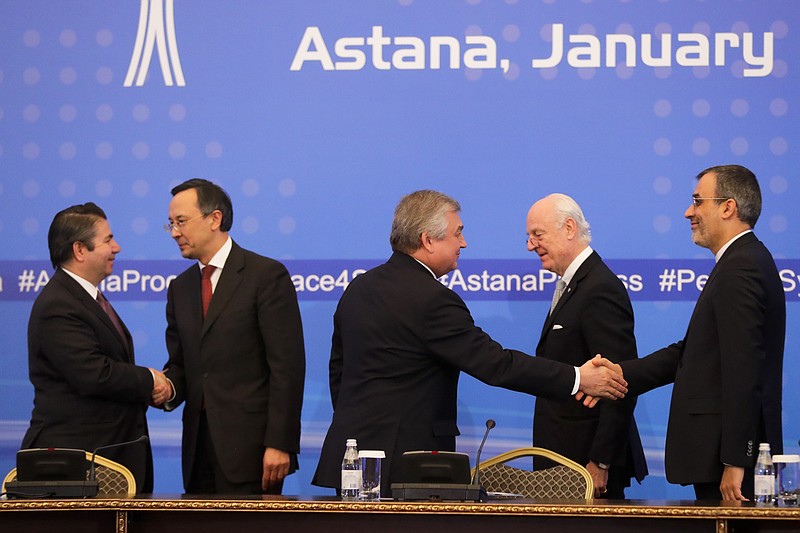ASTANA, Kazakhstan (AP) - Russia, Turkey and Iran, who sponsored the first face-to-face meeting between Syria's armed opposition and Syrian government in Kazakhstan this week, issued a joint statement at the conclusion of the talks Tuesday announcing their intention to establish a trilateral mechanism to ensure full compliance with a cease-fire for Syria in place since Dec. 30.
Here are key points in the agreement:
CEASE-FIRE ENFORCEMENT
The parties pledged to use their influence to consolidate the cease-fire and to set up a trilateral mechanism to observe and ensure full compliance with the cease fire, prevent any provocations and determine all modalities of the cease-fire. The parties also pledged concrete efforts that would contribute to minimizing violations, reducing violence, building confidence and ensuring unhindered humanitarian access swiftly and smoothly.
FIGHTING MILITANTS
The three nations reiterated their determination to fight jointly against the Islamic State group and the al-Qaida affiliate in Syria and to separate from them other armed opposition groups.
JUMPSTARTING PEACE TALKS
The parties underlined the urgent necessity to jumpstart peace talks, adding that the meeting in Astana is an effective platform for a direct dialogue between the government and the opposition in accordance with U.N. Security Council resolutions. They supported what they said was the willingness of the armed opposition groups to participate in the next round of negotiations to be held between the government and the opposition under the U.N. auspices in Geneva around Feb. 8.
